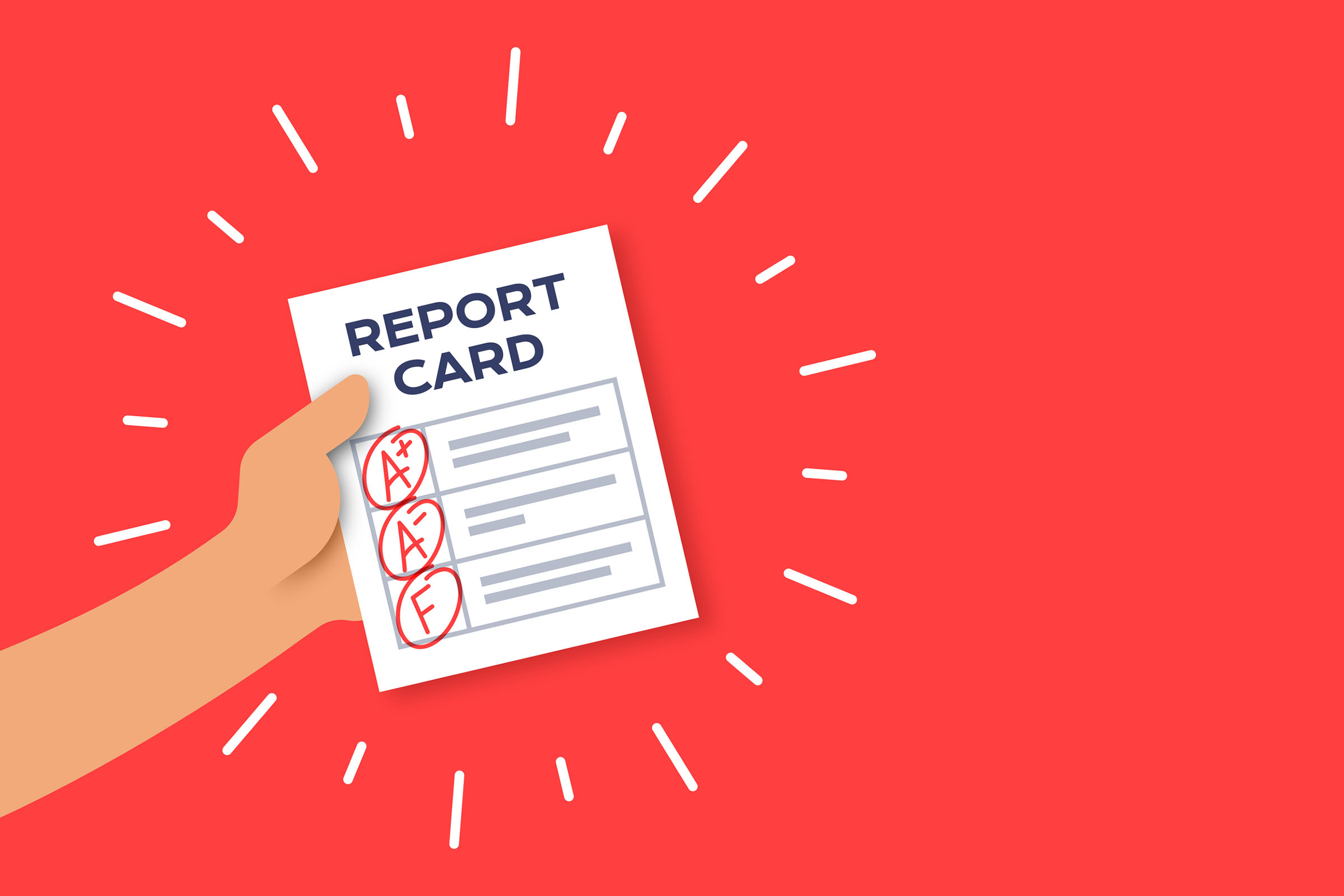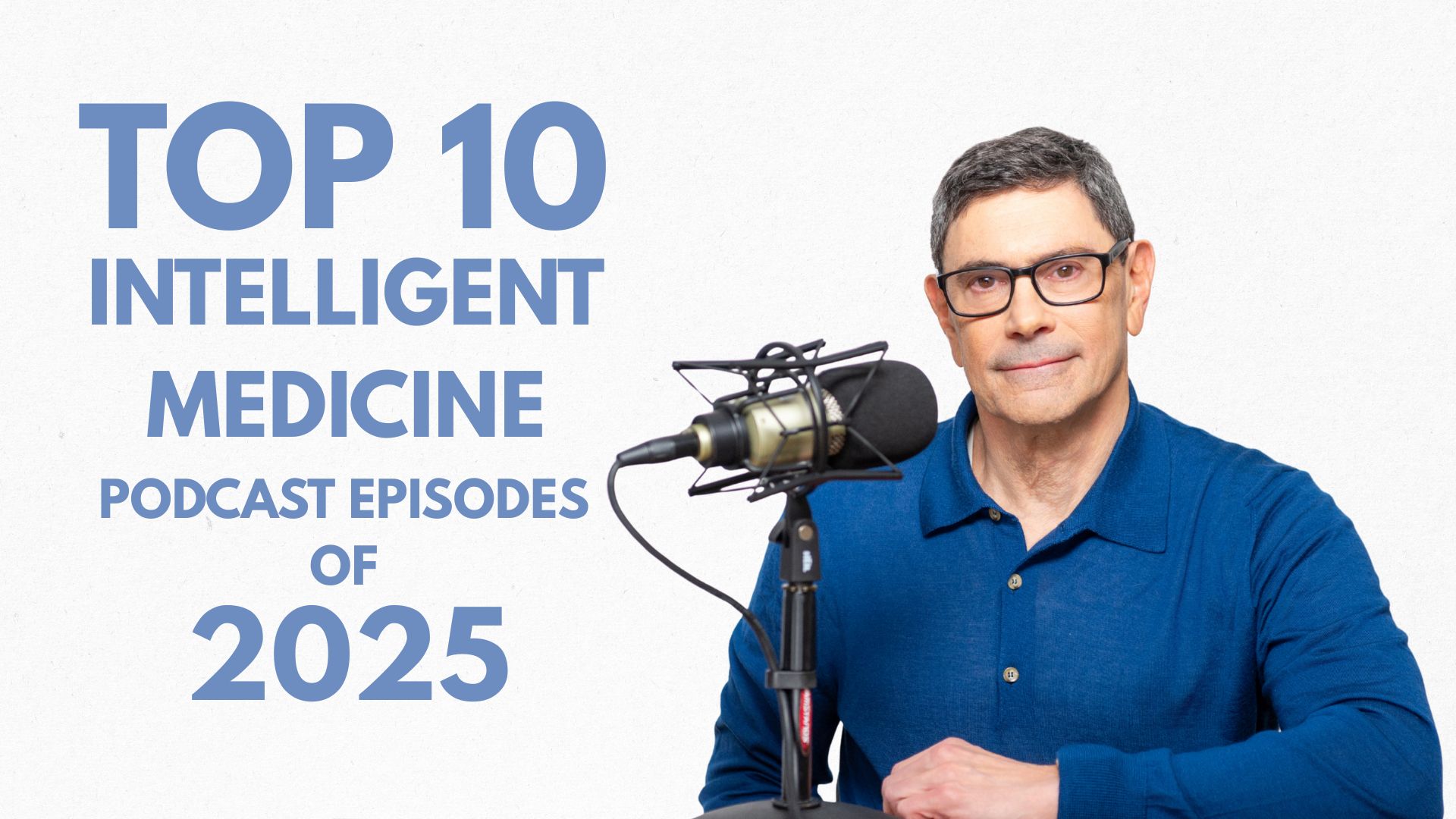‘Tis the season. As the pace of work and school slows, and the freneticism of shopping and parties abates, people are hopping into cars, buses, planes and trains to reach holiday destinations. Or else, they collapse and simply enjoy cocooning at home with family.
It’s a perfect time to relax with your computer or mobile device while catching up on some of our best Intelligent Medicine podcasts of 2019 that you may have missed (we’ve generated over 200 shows with timely, original, free content this year alone!). To date there have been nearly seven million downloads since we launched.
The New York Times recently reported:
“The number of podcast listeners has increased sharply this year, according to a new report. More than half the people in the United States have listened to one, and nearly one out of three people listen to at least one podcast every month. Last year, it was more like one in four. ‘That’s the biggest growth we’ve seen, and we’ve been covering podcasts since 2006,’ said Tom Webster, a senior vice president at Edison Research, a company that tracks business trends.” (Source)
While all of our Intelligent Medicine podcasts have been great this year, here are some of the highlights of 2019:
Dr. David Perlmutter, “The Empowering Neurologist,” rolls out some new projects: “Alzheimer’s—the Science of Prevention,” a webinar due out October ‘19; “The Microbiome and the Brain” in December; and the new book Brain Wash: Detox Your Mind for Clearer Thinking, Deeper Relationships, and Lasting Happiness, to be released in January 2020 and available for pre-order now! Is Dr. Perlmutter still persuaded about the perils of gluten, as previously outlined in Grain Brain
? What’s more harmful to the brain—excess carbs or saturated fat and cholesterol? Can the ApoE4 gene be overcome with diet and lifestyle measures? What supplements does Dr. Perlmutter recommend for neuroprotection? What about CBD? Why does he claim we are literally and figuratively being “brainwashed”? What are the roles for exercise, sleep, exposure to nature, fasting, Keto diet, caloric restriction, metformin?
Zen Honeycutt, Moms Across America: Baffled by her kids’ challenging health problems and finding no answers, an ordinary mom, Zen Honeycutt, embarked on a journey to discover the underlying causes of the modern epidemic of childhood illnesses like life-threatening food allergies, ADHD, and autism. Her search led her to found Moms Across America, a grassroots organization dedicated to forging a new standard for a healthy planet. Zen reveals startling details about the coverup of the toxic impact of GMO foods and glyphosate. Her children’s health was materially improved when she cleaned up her family’s diet, based on organic, minimally processed foods. She now travels across the country and around the world spreading awareness and mobilizing activism to support safe and sustainable agriculture and food production. Moms Across America is initiating a “Gold Standard” certification program to highlight safe brands. Her documentary, “Communities Rising,” describes her grassroots efforts and a new book, Unstoppable: Transforming Sickness and Struggle into Triumph, Empowerment and a Celebration of Community, showcases her mission.
How to Heal the Complex Patient: Many people suffer from a bewildering array of symptoms including fatigue, bodily aches and pains, depression and anxiety, sudden weight gain or loss, brain fog, and multiple food and chemical reactions. These are often branded “psychosomatic”. Dr. Neil Nathan presents a detailed roadmap to recovery in his book Toxic: Heal Your Body from Mold Toxicity, Lyme Disease, Multiple Chemical Sensitivities, and Chronic Environmental Illness. What is the Cell Danger Response (CDR) and how does it explain why patients get “stuck” in chronic illness? Why is mold toxicity such a pervasive trigger of a myriad of health problems? How can mold-exposed patients be detoxed? What is the role of tick-borne infections like Lyme and Bartonella in triggering chronic illness? What is Mast Cell Activation Syndrome (MCAS), and how can its proper identification facilitate relief from baffling symptoms? Why is it sometimes important to “reboot” a dysregulated autonomic nervous system in chronically ill patients? What supplements and medications aid recovery? Why is it important to go slow with treatments? Dr. Nathan shares resources for clinicians and patients.
DNA testing: Is it ready for Prime-Time? Dr. Sharon Hausman-Cohen, Chief Medical Director of IntellxxDNA, shares her perspective on the genetic testing revolution. What’s the difference between a mutation and a SNP (single nucleotide polymorphism)? How does the IntellxxDNA test differ from, say, 23andMe? Isn’t it potentially scary to find out you have a “bad” gene, like the ApoE4 gene that’s associated with Alzheimer’s Disease risk? Can genetic risk factors be overcome with diet, exercise, and targeted supplements? IntellxxDNA pinpoints obesity genes, genes that predispose to diabetes and heart disease, macular degeneration, autoimmune disorders, thyroid problems and osteoporosis. Certain SNPs predict the likelihood of neurodegenerative diseases when exposed to environmental toxins like mercury and glyphosate. Others may dictate higher requirements for antioxidants, B vitamins, magnesium, vitamin D, and choline. Why is the IntellxxDNA test only available through health practitioners? Some critics say genetic testing is only in its infancy and not yet ready for primetime—is this mistaken? What can genomic testing tell us about remedial strategies for autism?
Debunking Myths About Irritable Bowel Syndrome: One of the world’s most authoritative experts on Irritable Bowel Syndrome (IBS), author of The Digestive Health Solution – Expanded & Updated 2nd Edition: Your personalized five-step plan for inside-out digestive wellness, dispels myths about this poorly understood condition. In an article entitled “Does Irritable Bowel Syndrome Exist?” Dr. Benjamin Brown challenges the notion that it’s one overarching disease; rather there are many subtypes, amenable to solutions other than routine antispasmodics, antidepressants, and fiber supplements that deliver relief to a mere 25% of sufferers. And it’s not just a psychological disorder. He discusses the role of diet, probiotics, and herbs. What about the low-FODMAP diet? Gluten-avoidance? Food allergies? Histamine intolerance? Pancreatic enzymes? Cognitive-behavioral therapy and stress reduction? Is there a relationship between IBS and fibromyalgia?
In our next issue, I’ll be finishing up the list with five more memorable podcasts from this year. In the meantime, get new episodes of Intelligent Medicine automatically downloaded to your computer or mobile device from one of these popular podcast services:
Apple Podcasts
Google Podcasts
Spotify
Pandora
Stitcher
TuneIn
iHeartRadio
Or, copy and paste this URL into your favorite podcasting software or RSS reader: http://drhoffman.com/podcast/feed/intelligent-medicine/








